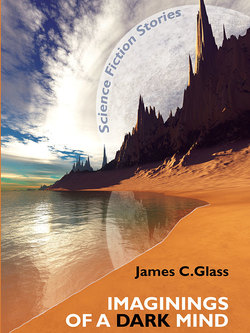Читать книгу Imaginings of a Dark Mind - James C Glass - Страница 6
На сайте Литреса книга снята с продажи.
ОглавлениеFOREWORD
I woke up one morning and suddenly realized I’d been publishing science fiction and fantasy for over twenty years. The story collection you hold in your hands is part of my celebration of those years.
I have never been a full-time writer, and have never considered trying to make a living at it. I never gave up my day job, and had a long career in physics that was very satisfying to me. I was lucky to be in industry during the ‘golden age’ of manned-space-exploration. I worked on ion and arcjet engines, did diagnostics on the F-1 engine and a mock-up of the first lunar excursion module. I returned to graduate school. After that came a thirty-plus year academic career teaching physics at all levels, making Ph.D. clones of myself, and doing research in molecular biophysics and superconductivity before moving into administration. And during all those years, my writing of science fiction and fantasy came in little bursts as the writing bug bit me again and again.
I wrote stories in high school. The first science fiction convention I attended was Westercon 3 in 1953. That makes me old. My best friend was an artist, and he sold a lot of his Chesley Bonestell-style art at the convention. We put out a fanzine together for over a year. One of our contributors, Joel Nydahl, published a story in Galaxy when he was a teenager. And I received my first rejection slip from F&SF with a handwritten note attached! But undergraduate school intervened, and I didn’t write again until after graduation. I wrote a few stories, and was a dropout of ‘The Famous Writers’ School’ after finishing over half the course. Raising a family and then graduate school had intervened again.
When a real desire to write is there, it does not go away, and sooner or later the call must be answered. The writing ‘bug’ gave me my terminal bite in the early eighties; I began writing regularly and sent in a few stories each year. The rejection slips I collected were the dues a writer pays to become an author. I continue paying those dues to this day.
My first published story was a mainstream piece in a literary publication called The Best of Northlight put out by Concordia College in 1988. The first story I was paid for was “Bodyguard,” collected here, for which I was paid a fifty percent kill fee when the magazine I’d sold it to had to fold. These things happen to writers. “Axalay’s Gifts’ and “Mutiny on the Phoebus” suffered similar fates in later years, and are also printed here for the first time.
Things really started to happen around 1988, when I sold “Jet-Dancer” (anthologized elsewhere) to Aboriginal Science Fiction. I entered the Writers of the Future contest, but my story didn’t even make the first cut. Shortly after that I took a shortened version of the Writers of the Future workshop, given by A. J. Budrys after a convention in Moscow, Idaho. And the first story I wrote after the workshop won the grand prize of Writers of the Future in 1990. That story, “Georgi,” is again anthologized here with the kind permission of Galaxy Press, which does the annual WOTF anthology. The win opened many doors for me, and any writer wishing to be published is well advised to enter the contest. For their guidelines, go to www.writersofthefuture.com
That was the real beginning for me, but since then I’ve continued to be only a part-time writer. I got my active membership in Science Fiction & Fantasy Writers of America the hard way, with three stories sold to markets considered professional at the time. I sold short stories for years before even attempting a novel, and now have several books published. I’ve had no best sellers, except in audio editions. I’ve not made a lot of money, nor do I have a big name in the genre. But the creative satisfaction I’ve experienced, the professionals I’ve met in the business, the readers and fans at signings and conventions have enriched my life beyond imagination.
There have been several important people in my writing life. Algis Budrys was my first teacher and mentor. Rest in peace, A. J. I miss you. John Dalmas and M. J. Engh have been my teachers, first readers and friends for over a decade. Thanks for that. Thanks also to Steve Perry, Barb and J. C. Hendee, Patrick Swenson, Stan Schmidt, Ken Rand, and Catherine Asaro for readings, jacket blurbs, and editorial advice over the years. Wife Gail has patiently allowed me the quiet time to do the stuff I do. Thank you, dear. Special thanks go to John Goodwin and Galaxy Press for permission to include “Georgi” in this collection. And finally I give thanks to my editor Robert Reginald and publisher John Betancourt for their work on this volume and others.
It has been a blast, people, and I’m not finished yet.
Please visit my web site at: www.sff.net/people/jglass/
—James C. Glass
Spokane, Washington
June 8, 2009
